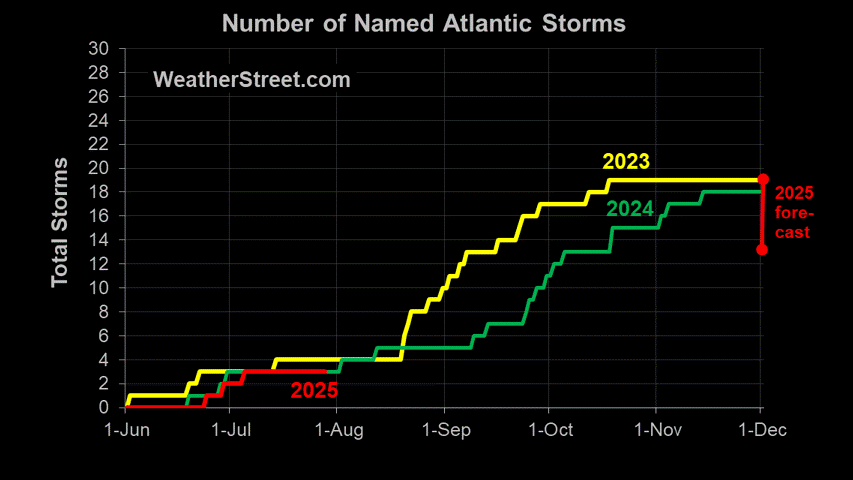Atlantic Hurricane Season Begins Wednesday
 The 2011 Atlantic Hurricane Season begins tomorrow (Wednesday June 1) and it promises to be another busy one. Last year was a real doozy with the very unusual aspect of there being no US landfall events throughout the entire year. For such a busy season this was very strange indeed. It is unlikely that we will be spared this year.
The 2011 Atlantic Hurricane Season begins tomorrow (Wednesday June 1) and it promises to be another busy one. Last year was a real doozy with the very unusual aspect of there being no US landfall events throughout the entire year. For such a busy season this was very strange indeed. It is unlikely that we will be spared this year.Forecasters: 2011 Tropical Storm Season Busy, But Slower Than 2010 (Property Casualty 360)
Another weather forecasting team is predicting an active hurricane season for 2011, calling for an above-average number of storms to form in the Atlantic Hurricane Basin.The key factor in why 2010 was so active of a year was La Nina. La Nina conditions typically favor the development of tropical activity in part by lowering the pressure in the Atlantic Basin and also by promoting warmer water in the Atlantic, Caribbean and Gulf of Mexico. This year La Nina is expected to weaken. Also the sea surface temperatures are not as high as they were this time last year.
Earth Networks’ WeatherBug meteorology team foresees a lower number of expected hurricanes in comparison to 2010, but its numbers are still trending above what is considered to be a normal tropical storm season.
Specifically, Earth Networks expects a total of 13-14 named storms to form, with 7-8 becoming hurricanes. Of those, it expects four will become strong enough to be classified at “intense” storms—Category 3 or higher on the Saffir-Simpson scale.
An average tropical storm season is 10 named storms, six hurricanes, and 3 intense hurricanes.
The combination of a weakening La Nina plus slightly lower sea surface temperatures is expected to lessen the tropical activity this year, however it is still expected to be an above average year.
NOAA Hurricane Outlook Indicates an Above-Normal Atlantic Season (AccuWeather)
Climate factors considered for this outlook are:
* The continuing high activity era. Since 1995, the tropical multi-decadal signal has brought ocean and atmospheric conditions conducive for development in sync, leading to more active Atlantic hurricane seasons.
* Warm Atlantic Ocean water. Sea surface temperatures where storms often develop and move across the Atlantic are up to two degrees Fahrenheit warmer-than-average.
* La Niña, which continues to weaken in the equatorial Pacific Ocean, is expected to dissipate later this month or in June, but its impacts, such as reduced wind shear, are expected to continue into the hurricane season.
"In addition to multiple climate factors, seasonal climate models also indicate an above-normal season is likely, and even suggest we could see activity comparable to some of the active seasons since 1995," said Gerry Bell, Ph.D., lead seasonal hurricane forecaster at NOAA's Climate Prediction Center.
NOAA's seasonal hurricane outlook does not predict where and when any of these storms may hit. Landfall is dictated by weather patterns in place at the time the storm approaches. For each storm, NOAA's National Hurricane Center forecasts how these weather patterns affect the storm track, intensity and landfall potential.
"The tornadoes that devastated the South and the large amount of flooding we've seen this spring should serve as a reminder that disasters can happen anytime and anywhere. As we move into this hurricane season it's important to remember that FEMA is just part of an emergency management team that includes the entire federal family, state, local and tribal governments, the private sector and most importantly the public," said FEMA Administrator Craig Fugate.
"Now is the time, if you haven't already, to get your plan together for what you and your family would do if disaster strikes. Visit ready.gov to learn more. And if you're a small business owner, visit www.ready.gov/business to ensure that your business is prepared for a disaster," added Fugate.









<< Home